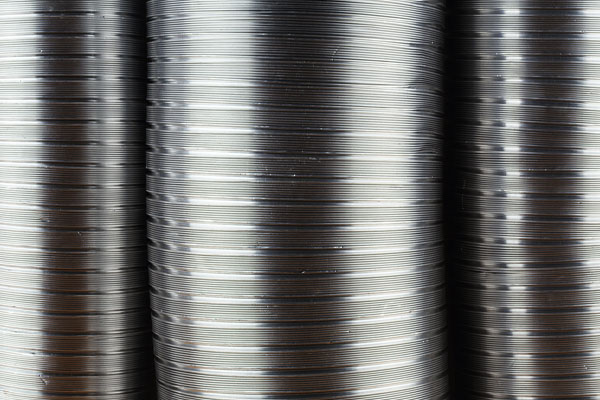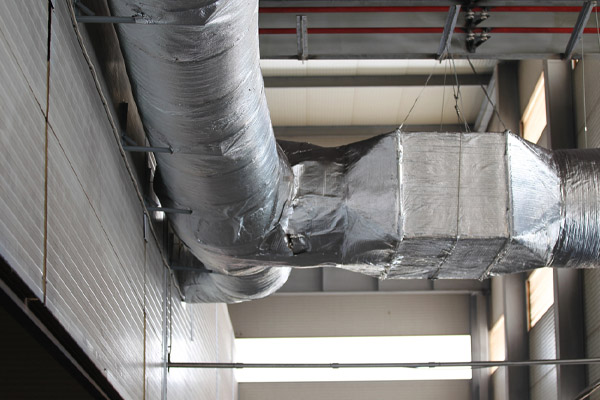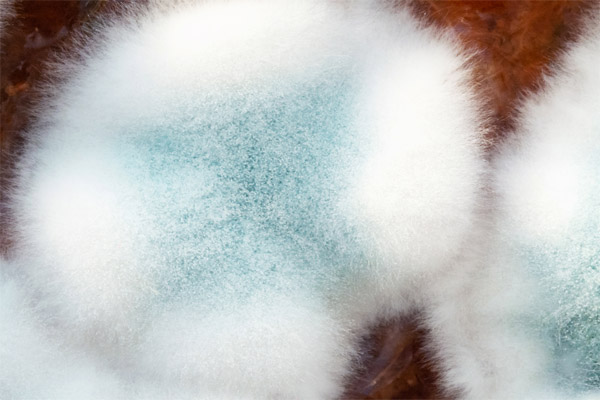How Long Does Ductwork Last?

Ductwork plays a crucial role in HVAC systems. Like any other component, ducts have a limited lifespan. This article delves into the factors that determine the longevity of ductwork, including material quality, installation techniques, maintenance practices, and environmental conditions. By understanding these variables, homeowners and building managers can gain insights into how long they can expect their ductwork to last. In turn, they can make informed decisions about repairs or an HVAC ductwork replacement. Discover key considerations that influence the durability of ductwork and ensure optimal performance for years to come.
How Long Does HVAC Ductwork Last?
Contents
The lifespan of ductwork can vary depending on several factors. On average, well-maintained ductwork can last between 15 to 25 years. However, this estimate is not definitive. Various elements can impact the longevity of ducts. Factors such as the quality of materials, installation techniques, regular maintenance, and environmental conditions play significant roles.
Consult an HVAC professional to get a more accurate assessment of the condition of your ductwork. They can guide you on whether repairs or replacements are necessary.
Related Article: How Much More Energy-Efficient Are New Air Conditioners?
Why HVAC Ductwork Is Important

Ductwork is vital for the proper functioning of HVAC systems. Here are a few reasons why HVAC ductwork is important:
- Air Distribution: Ductwork serves as a network of pathways that distribute conditioned air from the HVAC system to different areas of a building. It allows heated or cooled air to reach each room effectively, maintaining a comfortable indoor environment.
- Airflow Regulation: Ductwork allows for the control and regulation of airflow. Properly designed and installed ducts help balance air distribution, providing consistent temperatures throughout the building and preventing hot or cold spots.
- Indoor Air Quality: HVAC ductwork is vital in maintaining indoor air quality. It includes air filters that capture dust, allergens, and pollutants. It prevents them from circulating through the space. Clean and well-maintained ducts contribute to healthier indoor air.
- Energy Efficiency: Efficiently designed and sealed ductwork minimizes energy losses by preventing air leaks. Leaky ducts can lead to significant energy wastage, reducing the overall efficiency of the HVAC system. Properly installed vents also help retain conditioned air, reducing the workload on the HVAC system.
- Noise Control: Well-designed ductwork can help minimize noise transmission from the HVAC system to different areas of the building. It allows for the installation of sound attenuators and insulation materials, reducing the noise generated by the airflow.
Related Article: Rust On Air Conditioner Condenser: What You Should Know
Factors That Impact HVAC Ductwork Lifespan

Several factors can influence the lifespan of HVAC ductwork. Here are some key factors to consider:
- Material Quality: The quality of the ductwork material is essential. Ducts made from high-quality materials, such as galvanized steel, aluminum, or fiberglass, tend to have longer lifespans compared to lower-quality materials.
- Installation Techniques: Proper installation is vital for the longevity of ductwork. Improper installation, including inadequate sealing or excessive bending of ducts, can lead to air leaks, increased wear and tear, and premature failure.
- Maintenance Practices: Regular maintenance plays a significant role in extending the lifespan of ductwork. Routine inspections, cleaning, and filter replacements help prevent the accumulation of debris, mold, and dust that can negatively impact the duct’s performance and durability.
- Environmental Conditions: Environmental factors such as humidity, extreme temperatures, and exposure to corrosive substances can impact the lifespan of ductwork. High humidity levels may cause concern and promote mold growth. Corrosive substances can deteriorate the ducts over time.
- Usage and Load: The frequency of use and the load placed on the HVAC system can affect the lifespan of ductwork. Systems that are heavily used or subjected to higher airflow levels may experience more wear and tear, potentially shortening the duct’s lifespan.
- Maintenance of Surrounding Areas: The condition of the spaces where the ductwork is located also impacts its longevity. Proper installation, protection from pests and rodents, and avoidance of excessive dust or debris can help maintain the integrity of the ductwork.
Note that these factors are not exhaustive, and individual circumstances may vary. Regular inspections by HVAC professionals can help identify any issues and determine the appropriate maintenance or replacement needs.
Related Article: What is a High-Velocity Mini Duct HVAC System?
Signs You Need HVAC Ductwork Replacement

Determining when to replace air ducts is crucial for maintaining optimal HVAC performance. Here are some signs that indicate the need for air duct replacement:
Age Of HVAC Ductwork
If your ductwork is over 15 years old, it may be time to consider a replacement. Aging ducts are more prone to leaks, deterioration, and reduced efficiency.
Related Article: When to Call Emergency HVAC Services
Visible Damage
Inspect your ductwork for visible signs of damage, such as cracks, holes, or gaps. These issues can lead to air leaks, causing energy wastage and reduced comfort.
Inconsistent Airflow
If you notice uneven airflow in different rooms or areas of your home, it could indicate ductwork problems. Blockages, leaks, or damaged ducts can disrupt the balanced distribution of air.
Excessive Dust Or Debris
Excessive dust or debris accumulating around supply registers or return vents may signal leaks or breaches in your ductwork. This can result in poor indoor air quality and increased allergy symptoms.
Mold And Mildew Growth

Ductwork that has been exposed to moisture or has inadequate insulation can develop mold or mildew. Foul odors or visible growth around ducts indicate the need for replacement to prevent health hazards.
Related Article: Is Your HVAC System Protected From Power Surges?
Rising Energy Bills
Leaky or poorly insulated ducts can lead to significant energy losses. It can cause your HVAC system to work harder and increase energy bills. If you see a sudden spike in energy costs without any other explanation, it may be time to check your ductwork.
Noisy Operation
Unusual noises, such as rattling, whistling, or banging sounds coming from your ducts, may indicate problems with the system. Damaged or improperly sealed ductwork can create these noises and require replacement.
Remember that these signs serve as guidelines. It is still imperative to consult an HVAC professional for a thorough inspection and accurate assessment of your specific ductwork condition.
Related Article: Must-Have Accessories to Improve HVAC Performance
Should You Replace Ductwork When Replacing The HVAC System?
Deciding whether to replace ductwork when replacing the HVAC system depends on several factors. Here are some considerations to help you make an informed decision:
- Age and Condition: Consider the age and condition of your existing ductwork. If the ducts are relatively new, well-maintained, and free from major issues such as leaks or damage, replacing them may not be necessary when replacing the HVAC system.
- System Compatibility: Assess the compatibility between the new HVAC system and the existing ductwork. Different systems may have specific requirements regarding duct size, design, or airflow capacity. If the current ductwork meets these requirements and can handle the airflow of the new system, replacement may not be needed.
- Efficiency and Airflow: Evaluate the efficiency and airflow of your existing ductwork. Leaky or poorly insulated ducts can significantly impact energy efficiency and overall system performance. If the ductwork has major leaks or insufficient insulation, replacing it can improve efficiency and proper airflow.
- Cost Considerations: Consider the cost implications of replacing ductwork. While replacing ducts can add to the overall cost of the HVAC system replacement, it may be a worthwhile investment. This is especially true if the existing ductwork is inefficient, poorly designed, or in poor condition. Long-term energy savings and improved comfort can outweigh the initial cost of replacement.
- Future Plans: If you have plans to remodel or expand your home soon, it is a good opportunity to replace the ductwork along with the HVAC system. This allows for better integration of the new system with the modified expanded space.
Related Article: How HVAC Comfort Zones Cut Energy Costs
Conclusion
While the average lifespan of ductwork ranges from 15 to 25 years, it is still important to rely on professional opinions for an accurate assessment. HVAC contractors can inspect the condition of your ductwork, identify signs of deterioration, and provide expert advice on whether repairs or replacements are necessary. Their expertise allows homeowners and businesses to make informed decisions, optimizing the performance and efficiency of HVAC systems for years.
Related Article: Tips on How to Protect Your HVAC Warranty
Call McAllister Energy For All Of Your HVAC Requirements

McAllister Energy is the leading provider of heating and cooling services in southern New Jersey. Our team comprises highly skilled and certified technicians specializing in HVAC tune-ups, repairs, installations, and replacements. We take pride in delivering top-quality services to all our clients.
At McAllister Energy, we understand the importance of having a comfortable and energy-efficient home. That is why we offer competitive pricing for our services. Our maintenance services are designed to enhance comfort and reduce energy bills. If you require an HVAC repair or replacement, our knowledgeable technicians can recommend the best option while keeping your budget in mind. We stand behind our work and offer a satisfaction guarantee.
To schedule a service appointment with us, simply give us a call. We offer free, in-home estimates to help you make informed decisions about your HVAC systems. You can trust McAllister Energy to provide exceptional heating and cooling services that will exceed your expectations!
You can click here to contact us now or call us at (856) 665-4545 to find out more! Click the link to view our service area.